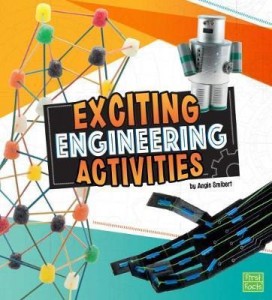Between novel series, I’ve been writing nonfiction for kids on a work-for-hire basis. Recently, I’ve had several fellow writers ask me about how to get started in it, so I thought I’d post the info here on my site. See Part I and Part II, if you haven’t already.
Part 3: What to expect when you get your first WFH gig.
Bear in mind, your experience will vary, depending on the publisher, topic, and other factors. When working in educational nonfiction for kids, you’re going to deal with:
- Cra
 zy tight schedules.
zy tight schedules. - Fairly strict guidelines.
- A lot of research. (Duh, but important)
Schedules
I’ll warn you. Schedules are very tight. Like crazy tight. That doesn’t mean they’re not doable, but you need to be able to write quickly (and smart)—and to guidelines. Usually, you have a month or less to write the book! Don’t panic too much, though. NF titles for kids are typically anywhere from 1K-10K words total, depending on age and topic.
Guidelines
The editor will give you series guidelines to follow and perhaps a sample from a similar series to look at. Guidelines (anywhere from 2-10 pages) usually include the series description, reading / ATOS level, word count, number of chapters or spreads, topics to cover, sidebars, back matter, citation formats, and so forth. (ATOS level, btw, is derived using a readability formula, and there are sites you can cut-and-paste text into to get a score.) Back matter can include glossaries, bibliographies, activities, etc. (You typically are responsible for everything except the index and illustrations!)
Research
Research is critical to nonfiction. Publishers require everything to be extensively footnoted—and from quality sources. (Quality sources mean no children’s books, questionable websites, or sometimes even popular magazines.) You need to have access to a good library, preferably with electronic databases. Most public libraries do give their patrons access to databases like Gale or Credo. Some colleges also give their alumni library access, too. Luckily, I have access to a university library online as well as a solid public library. (Those librarians really wonder about my reading habits!) On occasion, I do have to buy a book (used) because I can’t find a solid source on something like the Airbus a380 or building a stadium.
Final advice: be prepared to write smart. These projects don’t necessarily pay a lot. So you need to balance the amount of time you put into them against what you get out.
